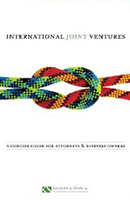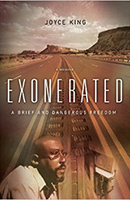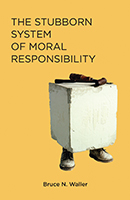 VERDICT: Not for Me, Maybe for You
VERDICT: Not for Me, Maybe for You
International Joint Ventures, A Concise Guide for Attorneys and Business Owners
By Robert Klueger & Jacob Stein (Encino, CA: Klueger & Stein LLP, 2014). 102 pgs. $22.50.
Order, www.amazon.com.
Reviewed by David M. Feldman
Writing a book for diverse audiences that explains complex legal and tax concepts in a clear, concise, plain-English style is a formidable undertaking. The authors of International Joint Ventures (IJV) achieved this goal in a primer written in a cogent manner that reflects the authors’ expertise and experience. IJV provides a good introduction to an increasingly prevalent business practice, creating a foreign joint venture with a foreign partner.
IJV begins with definitional concepts for an international joint venture, describes the rationale for such ventures’ increased popularity, and explains alternative business structures to undertake foreign operations (for example, independent agents, license agreements, branch, subsidiary). The authors describe the crucial functions of operational, legal, and financial international due diligence and distinguish them from due diligence in the domestic context.
IJV explains fundamental U.S. international tax-planning aspects affecting international joint venture formation, including foreign-entity-selection consequences, deemed dividends, Subpart F antideferral treatment for controlled foreign corporations’ U.S. shareholders, foreign tax credit determination and its benefit of abating double taxation, asset contributions to a foreign entity, using an S corporation as a venture partner, and the importance of evaluating tax treaties for permanent establishment status. The final chapter focuses on the primary documents used in venture arrangements and includes a detailed analysis of a letter of intent and joint venture agreement, with particular emphasis on these documents’ negotiation aspects.
Want to Review a Book?
Please request a book and writing guidelines from Wisconsin Lawyer managing editor Karlé Lester, at klester@wisbar.org or (608) 250-6127. Reviewers may keep the book reviewed. Reviews of about 500 words are due within 45 days of receiving the book. Reviews are published, space permitting, in the order received and may be edited for length and clarity.
IJV is a good resource for midsized entities’ business managers, officers, and owners anticipating the formation of their first international joint venture. It contains many examples to illustrate and explain each concept, business-purpose checklists to evaluate foreign markets and prospective foreign partners, diagrams with accompanying narrative discussion to explain tax-efficient structuring alternatives, and appendices including shell document templates and IRS forms that such ventures frequently use.
Attorneys might be less enthusiastic than other readers about the book. Unlike other transactional law primers (for example, Practical Guide to U.S. Taxation of International Transactions and Private Equity and Venture Capital Manual), IJV has few references to primary sources and no references to case law or secondary sources. A limited discussion of joint venture operational issues is provided with no discussion of joint venture exit strategies. Nuanced partnership tax and international tax factors are excluded from IJV. For example, the book does not discuss partners’ special allocations, partnership basis adjustments and liabilities treatment, treasury center operations, financial and tax reporting, repatriation strategies, source expense allocations, loss and FTC limitations, supply chain-transfer pricing issues, and prospective changes to the international tax landscape.
Since IJV’s scope is limited to outbound transactions with a focus on formation issues, business professionals or attorneys seeking to understand international joint ventures will find IJV a good starting point. Attorneys desiring comprehensive coverage should find alternative resources. WL
Dave Feldman, U.W. 1987, is a certified public accountant and attorney practicing in Milwaukee.
 VERDICT: Not for Me, Maybe for You
VERDICT: Not for Me, Maybe for You
Exonerated: A Brief and Dangerous Freedom
By Joyce King (Austin, TX: River Grove Books, 2014). 308 pgs. $12.60.
Order, www.amazon.com.
Reviewed by Farheen Ansari
Exonerated is a biography of James Woodard, who spent 27 years in prison after being wrongfully convicted for murdering his girlfriend. The author, Joyce King, worked on Woodard’s case as a board member of the Innocence Project of Texas. King and Woodard met after his release and soon fell in love.
The book begins by providing a glimpse into what prison life was like for Woodard and details the emotion-filled day he was exonerated. Personal stories of other exonerated men are also shared. The book takes a more personal turn when King and Woodard meet. Although King strays from the usually objective voice of a biographer, she balances her personal interest by providing a first-hand account of everything a person must do to adjust to life after decades of being imprisoned.
The shift in focus from Woodard’s exoneration and assimilation into society to a detailed account of the dysfunctional relationship between King and Woodard in the years after his release was an unexpected but interesting turn. Books on wrongful convictions often take readers through the harrowing nightmare of being wrongfully accused and convicted through the joyful and overwhelming exoneration. Often left out is what comes after. The remainder of the book painstakingly details every fight and every make-up between King and Woodard, showing Woodard’s tragic downfall after his exoneration through an extremely personal and emotional lens. Woodard’s downfall could likely be attributed to many factors – some of them, King suggests, systemic failures, some of them personal choices. Ultimately, heavy drug use, repeated infidelities, and physical decline led Woodard back into the legal system and ultimately to his death.
King makes a call for action on providing more support for exonerees, but she also describes progress within the system that shows that attention is being provided to those already wrongfully convicted. For example, King and Woodard experienced the passage of the Timothy Cole Compensation Act, a bill that increased compensation for exonerees in Texas to $80,000 per year with benefits such as college tuition and health insurance. King also takes the reader inside a support group established for exonorees and their families, and the painful discussions that take place within them. Woodard’s story is a sad one and regardless of the viewpoint on what ultimately caused his death, the 27 years he spent in prison were 27 years too many.
Farheen Ansari, Marquette 2009, recently relocated from Madison to Houston, Texas.
 VERDICT: Not for Me, Maybe for You
VERDICT: Not for Me, Maybe for You
The Stubborn System of Moral Responsibility
By Bruce N. Waller (Cambridge, MA: MIT Press, 2014). 294 pgs. $38.
Order, http://mitpress.mit.edu.
Reviewed by Barbara Fritschel
Robert Harris, executed in 1992 for murdering two teenagers, is the poster person for Bruce Waller’s argument against moral responsibility. Harris’s parents were alcoholics, he might have suffered from fetal alcohol syndrome, and he was severely beaten by his father and abandoned by his mother. Waller argues that Harris is not morally responsible for his crimes and that no one is morally responsible for their actions, whether good or bad. According to Waller, the concept of moral responsibility, even with a long history and many advocates, is wrong. He argues that the belief in moral responsibility is stronger than any of the philosophical arguments that support it, making it “stubborn” and resistant to necessary change.
Most of the book challenges the various philosophical reasons brought forth in support of moral responsibility. Coming from a naturalistic-scientific belief system, Waller brings in evidence from sociology, psychology, and history to show there is no such thing as free will as it is commonly understood. Rather, people and their choices are shaped by environment, genes, and circumstances. Thus, Waller says, it is wrong to hold people morally responsible for any behavior because behavior is determined by factors beyond our conscious control.
Waller does not argue this means there should be no punishment. Rather, he tries to present a basis for a less punitive, more rehabilitative system. He compares the U.S. neoliberal culture to the socialist-democratic cultures of Sweden and Norway. He views the Scandinavian cultures as being based more on looking at how factors influence us to act in certain ways and their punishment systems as set up on the principle of trying to bring the offenders back into society.
For Waller, moral responsibility is based on getting “just deserts” for both good and bad behavior, a reward and punishment system. Waller acknowledges it can be less punitive than it is in its modern form, but there will always be an element of vengeance to it. Because the moral responsibility/reward and punishment system does not account for modern understandings of psychology and sociology, Waller argues, it should be replaced.
Most lawyers would probably find the last few chapters dealing with punishment and the culture of moral responsibility to be the most interesting. One could read only these chapters and still get the gist of the argument. This book is not a quick read. The arguments are complex (I have grossly simplified) and controversial. The book challenges several core ideas, and only time will tell if our society is willing to get rid of moral responsibility. If you are interested in philosophical arguments, this book may be for you. Otherwise, I would pass.
Barbara L. Fritschel, U.W. 1980, is U.S. Courts Librarian, Milwaukee.
